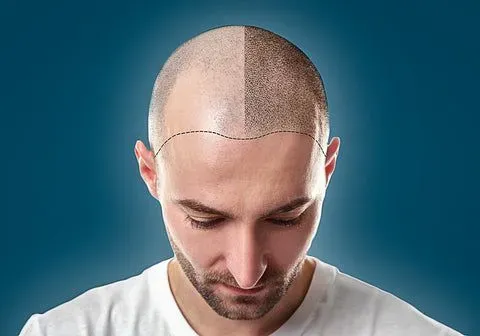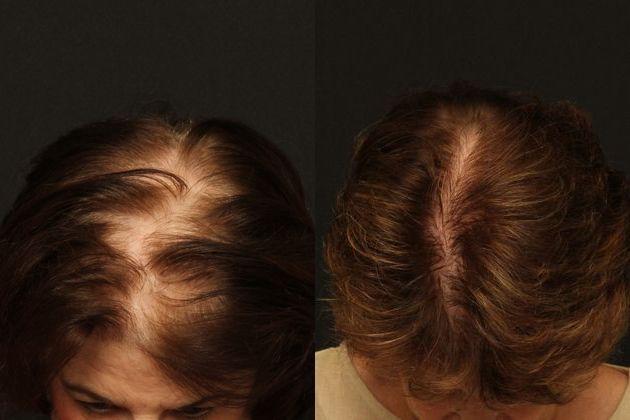Struggling with sudden hair loss or bald patches? You’re not alone — and yes, a natural cure for alopecia may be possible.
In this guide, we’ll explore proven holistic remedies, expert-backed tips, and real success stories. Discover how natural solutions can support hair regrowth, improve scalp health, and offer a long-term alternative to medications.
Backed by experience, medical insights, and patient case studies, this article helps you confidently navigate the path to recovery.
Understanding Alopecia: Types, Causes & Symptoms
What is Alopecia?
Alopecia refers to hair loss from the scalp or body, which can occur suddenly or gradually. It may affect small patches or lead to total hair loss. The condition is often distressing but not life-threatening.
Common Types of Alopecia
- Alopecia Areata: Autoimmune, patchy hair loss
- Androgenetic Alopecia: Genetically driven, often called male or female pattern baldness
- Telogen Effluvium: Hair shedding triggered by stress, illness, or hormonal changes
Root Causes of Alopecia
- Genetics
- Hormonal imbalance
- Autoimmune responses
- Nutritional deficiencies
- Stress and trauma
Understanding what type of alopecia you have is crucial in identifying the most effective treatment, natural or medical.
Can You Really Cure Alopecia Naturally?
What Science Says About Natural Healing
While there’s no “instant cure,” certain natural remedies have shown promise in stimulating hair regrowth and reducing hair fall. Research suggests that addressing inflammation, nutrition, and stress can improve hair follicle function.
Limitations of Conventional Treatments
Common treatments like corticosteroids or minoxidil may have side effects or short-lived results. That’s why many seek long-term, sustainable options.
How Natural Cures Offer Long-Term Support
Natural approaches focus on:
- Nourishing the body internally
- Improving scalp circulation
- Reducing autoimmune triggers
- Supporting hormonal balance
Proven Natural Remedies for Alopecia
Diet & Nutrition for Hair Regrowth
Nutrition plays a critical role in hair health. Deficiencies can directly impact the hair growth cycle.
Include in your diet:
- Biotin (eggs, almonds)
- Zinc (pumpkin seeds, lentils)
- Iron (spinach, red meat)
- Vitamin D (fatty fish, sunlight exposure)
- Omega-3s (chia seeds, walnuts)
Pro Tip: Avoid processed foods and excess sugar, which can inflame the scalp and hinder regrowth.

Herbal Treatments
Some herbs may help block DHT (a hormone linked to hair loss) and encourage regrowth.
- Saw Palmetto: May reduce DHT levels
- Ginseng: Enhances follicle stimulation
- Aloe Vera: Soothes inflammation and promotes scalp health
Essential Oils & Scalp Massage
- Rosemary Oil: Improves circulation and thickness
- Peppermint Oil: Encourages the hair growth phase
- How to Use: Mix a few drops with a carrier oil and massage into the scalp 3–4 times weekly.
Stress Reduction & Lifestyle Adjustments
Stress is a major contributor to alopecia, particularly Telogen Effluvium.
Try:
- Daily meditation or breathwork
- Yoga or gentle exercise
- Consistent sleep routine
- Limiting caffeine and alcohol
Expert Insight: What Dermatologists Say About Natural Remedies
“While pharmaceuticals can play a role, we increasingly see patients benefiting from lifestyle and nutritional changes,” says Dr. Rana Irfan, trichologist and integrative hair loss specialist.
Evidence-Based Recommendations
Several studies support natural approaches:
- Rosemary oil has shown comparable effectiveness to minoxidil (source: PubMed, 2015)
- Zinc and biotin deficiencies are prevalent in alopecia patients
Summary Table: Natural vs. Medical Treatments
| Aspect | Natural Remedies | Conventional Treatment |
|---|---|---|
| Side Effects | Minimal to none | Possible skin thinning, irritation |
| Long-Term Use | Safe with lifestyle benefits | Often temporary relief |
| Cost | Affordable | Can be expensive over time |
| Root Cause Addressed | Yes (nutrition, stress, hormones) | No |

Real-Life Success Stories
Case 1: Reversing Alopecia Areata Naturally
Sarah, 29, developed coin-sized bald spots. A combination of zinc supplementation, rosemary oil, and stress management helped her regain 80% of her hair in 5 months.
Case 2: Managing Telogen Effluvium with Diet
After childbirth, Ahmed experienced rapid hair shedding. A protein-rich diet, omega-3 supplements, and yoga reversed the condition within 3 months.
Experience-backed tip: Track your progress weekly with photos and journal entries to stay motivated.
Timeline for Recovery with Natural Cures
What to Expect at 1, 3, and 6 Months
- Month 1: Reduced shedding
- Month 3: Noticeable baby hairs
- Month 6: Thicker, denser regrowth
How Consistency Affects Results
Skipping oils or reverting to poor diet habits can delay recovery. A daily routine boosts success rates.
Tracking Progress
- Weekly photos
- Scalp massage log
- Nutrient intake checklist

FAQs About Natural Cures for Alopecia
Is natural treatment effective for all types of alopecia?
It works best for non-scarring types like alopecia areata or telogen effluvium. Scarring alopecia may need medical intervention.
Can I stop medication if I go natural?
Consult your doctor before making any changes. Some patients combine both for optimal results.
How long before I see results?
Typically, 3 to 6 months with consistent effort.
Are there risks to natural remedies?
Most are safe, but always patch-test essential oils and check for allergies.
Expert Tips to Maximize Natural Hair Regrowth
- Combine remedies like scalp massage + biotin for synergy
- Avoid tight hairstyles and heat tools
- Use silk pillowcases to prevent breakage
- See a trichologist every few months
🩺 Book a Free Consultation with Our Hair Recovery Expert
Ready to start your natural healing journey?
Book a consultation with Dr. Rana Irfan in Islamabad to receive a customized alopecia recovery plan — no steroids, no guesswork, just evidence-backed care.
